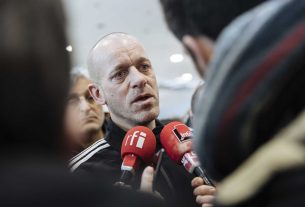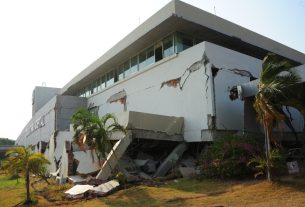TEHRAN- Former Iranian judicial officer Hamid Nouri, 61, who has been unlawfully jailed in Sweden, has criticized a new trial that has been initiated against him, asserting that he would not participate in the “unfair” process as long as his issues are unresolved.
A fresh set of trial hearings for Nouri, who was detained upon his arrival at Stockholm Airport three years ago, started on Wednesday in a Swedish court.
Authorities in Sweden claimed that he had participated in the execution and torture of Mujahedin-e-Khalq Organization (MKO) members in 1988.
Such spurious claims have been vigorously denied by Nouri.
The Swedish court system framed his case based on allegations made by the terrorist MKO organization, which claimed that Nouri was a prison guard for the MKO operatives in the jail.
Nouri declared at the outset of the fresh trial session that “I believe this tribunal is unjust, and I will not join the court as long as my concerns are not allayed.”
The court had switched off Nouri’s microphone, but he still spoke loudly, stating, “I do not have access to an ophthalmologist; consequently, I am unable to read the materials in my case.”
He went on to underscore, “I have spent the last three years and two months in solitary confinement. Although the judge has ruled that my limitations are no longer in effect, my contacts are still banned.”
Nouri was given a life sentence by a Swedish court last year. He has frequently complained about being abused and tortured in custody.
Nouri was given no assistance, not even a translator, to learn the details of the judgment before the Swedish court sentenced him to life in jail.
Not legally permitted to defend himself
On Sunday, Majid Nouri, Hamid Nouri’s son, spoke about his father’s horrible conditions in jail.
He also said that the judge wrote him in an email a couple of months ago that the restrictions had been lifted.
Unfortunately, prison guards continue to restrict his father in spite of the fact that the judge ordered the lifting of limitations, so he is still being kept in a solitary confinement and cannot have any visit or contact with his family members, the son explained.
Hamid Nouri’s son expressed concern about his father’s health in November 2022, citing three years of abuse and solitary incarceration.
“The process of arresting my father commences with lies. According to Swedish law, a person must enter Sweden of his own volition, but they duped my father into bringing him to Sweden, where he was jailed,” he pointed out.
Hamid Nouri’s son, while pointing to Sweden’s failures in the process of his father’s case, said that the Swedish officials have even changed the internal laws to complicate the case.
Reports say that the Swedish judicial system has not observed the initial human rights standards when it came to the Iranian citizen.
The treatment of the Swedish judicial system is an example of European countries’ claim of support for human rights. This is while that the Nordic states, and Sweden in particular, are claimed to greatly value human rights more than other countries in Western Europe.
Despite such unfair and illegal behavior toward Nouri, European countries have been harshly criticizing Iran for its human rights record. They have been slapping repetitive sanctions on the Islamic Republic under the pretext of human rights violations. Though they are fully aware that the chief victims of their sanctions are ordinary people, they continue to impose new bans on Iran.
The Nouri case is an example that there is a gulf between what the Europeans lecture and what they do in action.
Sweden changes rules to exacerbate the Nouri case
Hossein Jafari, the lawyer representing Hamid Nouri, also underlined that “I tried my best to provide evidence and documentation against the false accusations made against Hamid Nouri.”
According to the lawyer, 8 sessions of the appeals court will be held in public, of which the first two sessions will be for prosecutors to present their statements and evidence.
Jafari also emphasized that the whole process of the court will probably linger until the fall of next year.



